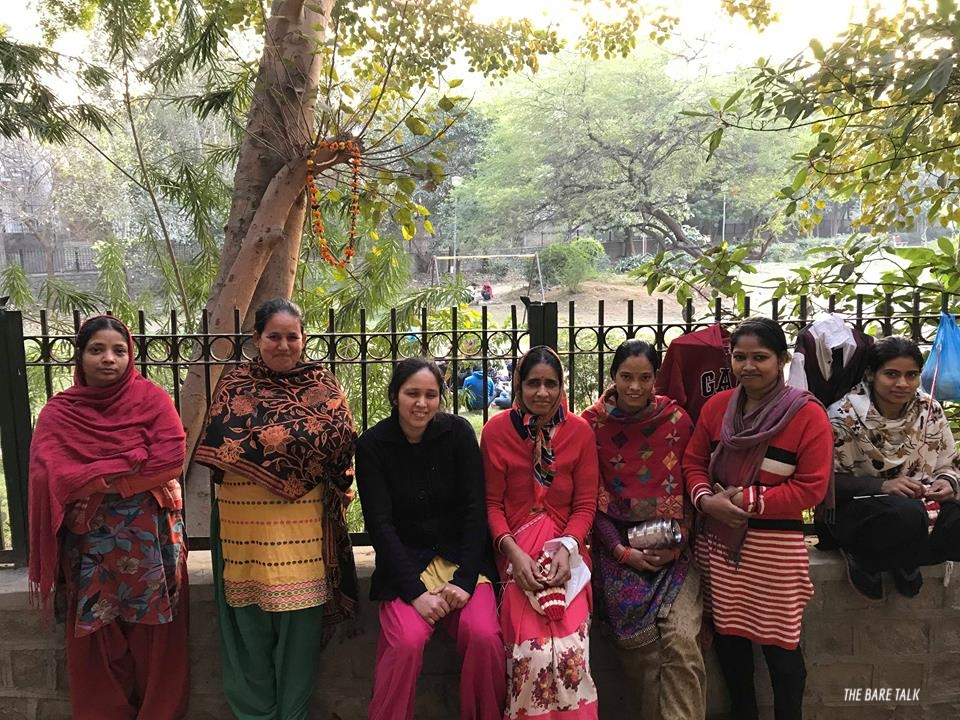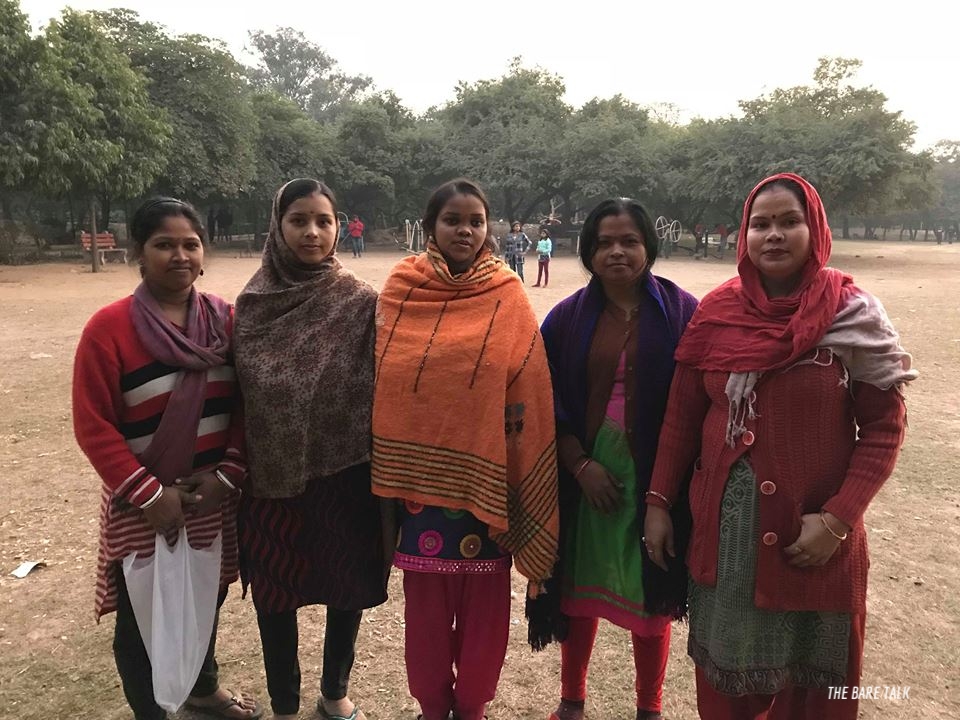Our team conducted a workshop to understand and improve the quality of information among women from lower socioeconomic status, about female reproductive anatomy & its functions. Among these women, some were homemakers, however, a majority of them work as domestic help for multiple homes. Additionally, most of these women have been unable to finish school for a variety of reasons like marriage or providing their family financial assistance, etc., and hence, have limited knowledge of basic biological processes, about which one might learn in school.
Once we had introduced ourselves and the topics we were hoping to discuss over the session, we asked some basic questions about periods, menstrual hygiene and general anatomy to assess the pre-existing level of knowledge. We quickly realised that despite the fact that most of the women were married and had children, their knowledge of basic reproductive processes and the menstrual cycle was minimal or even close to none.
One of the biggest myth we had to tackle was that most women believed that menstrual blood was in fact, ‘dirty’, which is why it was discharged from the body, like other bodily excretions. Unfortunately, this particular myth is extremely common in the country, especially among individuals from the lower strata.
During the course of the session, we showed them what a vulva and uterus looked like, the functions of the uterus and the process that results in periods, as well as daily discharges. Another important discussion that we had with these women was about hymen tearing & the society’s emphasis on physical proof of virginity. It was explained that not all women are born with a hymen, and those who are can have different types of them, so not all tear or result in bleeding. Any mistreatment due to the same should be deemed unacceptable and reported. We also discussed the risks of early marriage & pregnancy as well as tackling the myth, “ If a child has started to menstruate, their body is ready to bear a child”.
Furthermore, many of them had heard about discharge & also experienced it, but were unaware that it was the vagina cleaning itself. Many women had questions regarding the normal durations of periods, and through further inquiry revealed that almost all of these women had a light 2-day period, despite not being on any medications or birth-control. We addressed their concerns to their satisfaction and recommended some of them to further inquire with their respective gynaecologists.
Finally, basic menstrual health and hygiene practices were also discussed. Most of the women still prefer single-use cloth during their periods, as sanitary napkins for them are either expensive and/or not always available to them. They were given the option of using cloth pads as well, that we could arrange for them, which a few women opted for, however, most of them were uncomfortable to wash and dry these pads in their homes. This discomfort is a result of decades of ingrained shame associated with menstruation practices, which obviously cannot be eradicated in a few hours. However, we were pleased nonetheless, to see these women being able to discuss their concerns and issues, as well as questioning the myths that had been passed down to them.
The reason why we decided to discuss our experiences from the outreach to encourage you to reach out and have the discussion with those around you, those who don’t have access to proper education, medical facilities or financial support. Since we are able to read this online, on our phones or laptops, we can assume that we are in at least in some ways more privileged than millions of other members of the society. We would love for you to join our endeavour by being mindful about your roles and improve the quality of life of those around you.
Thumbnail Background Image Credits : Artwhoring (Facebook & Instagram)


